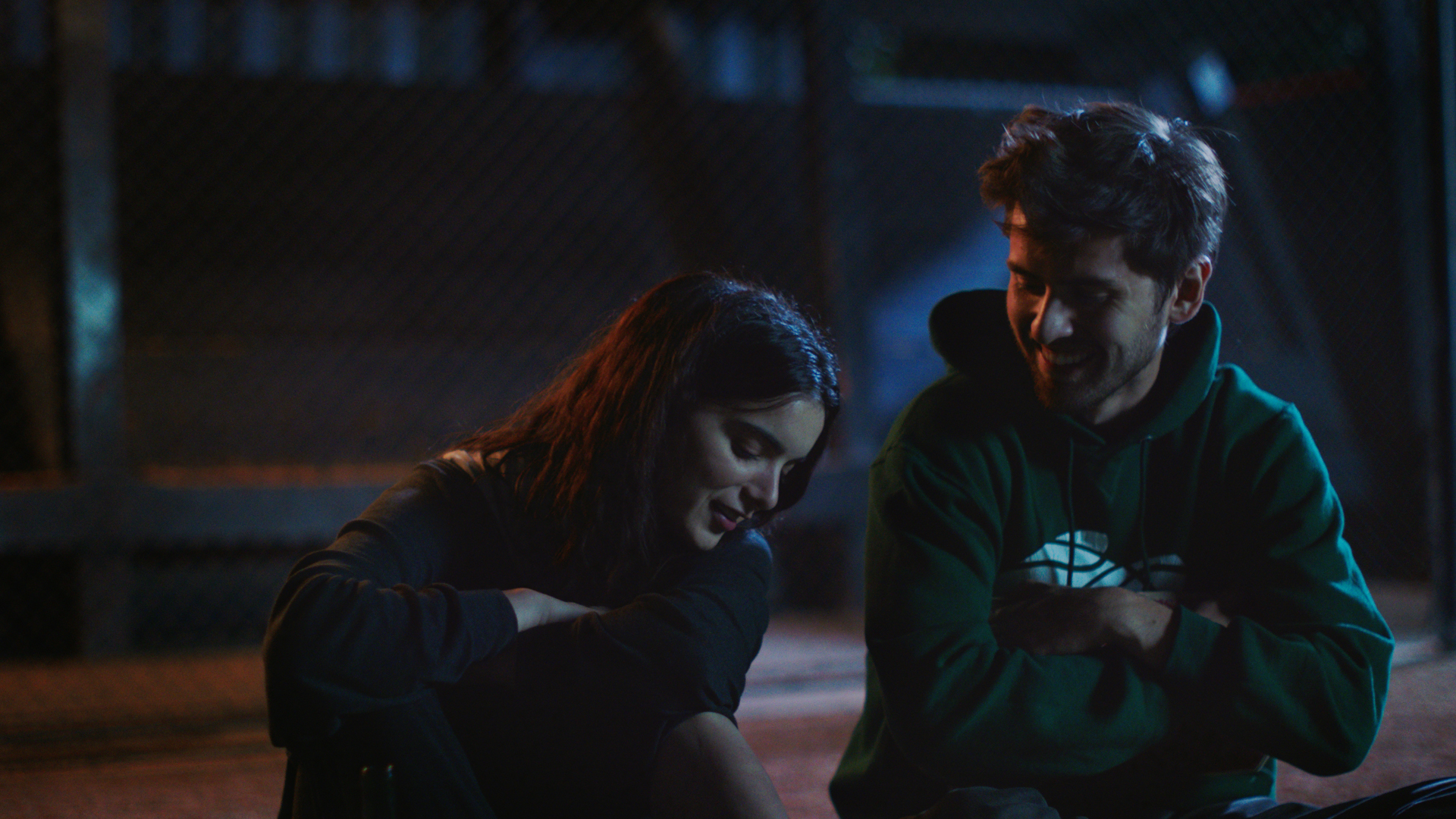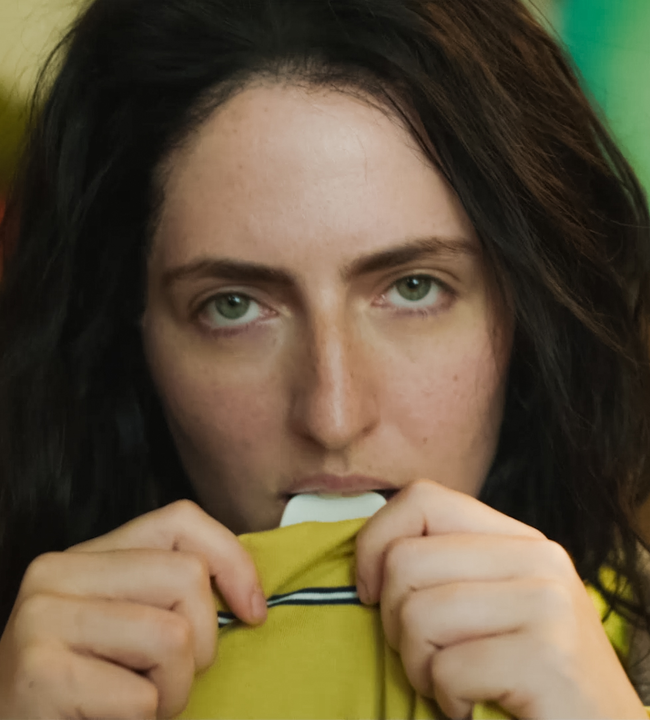Shithouse

(The 2020 SXSW Film Festival was sadly cancelled. Yet Hammer to Nail is still reviewing films that were slated to premiere at the fest! We present, #LostFilmsofSXSW. Like what you see here on Hammer to Nail? Why not give just $1.00 per month via Patreon to help keep us going?)
Cooper Raiff is the 22 year-old writer/director/star of Shithouse, and it’s fair to say this is his movie. Handsome, sensitive, and non-threatening, Raiff follows in the footsteps of his SXSW mumblecore predecessors—like a young Joe Swanberg for generation Z. However unlike Swanberg’s personas, Cooper’s main character Alex is kind of a loser. A loner and mama’s boy who mistakes his brittleness for emotional intelligence and is unable to cope with his new surroundings. His co-star and love interest is Dylan Gelula, who can also be seen at nighttime softball games in Kerem Sanga’s First Girl I Loved and whose character was just as sexually frank in Andrew Bujalski’s Support The Girls. Playing Maggie, Gelula doesn’t so much step outside her comfort zone, but rather grows in maturity as a slightly older authority figure (she’s Alex’s RA in his college dorm). While there is an equal balance of power, Raiff’s Alex is the novice while Maggie is the experienced one. The film is charmingly funny, if not gut-busting, and surprisingly sweet, despite its vulgar title (which will probably get changed by a distributor for obvious reasons). If the film’s title is a rookie mistake, it’s one of very few that Raiff makes on his magnetic debut effort.
In the opening scene Alex (Raiff) has a conversation with his stuffed animal (a wolf) in his college dorm room. The wolf tells him in closed captioning: “College sucks, but you’re also not trying.” It’s a really funny way to set the scene and quickly convey the protagonist’s arrested development. Then there’s Alex’s real roommate, Sam (Escape Room’s Logan Miller), who fills the best-friend archetype, except that at first they don’t like each other. One drunken night Sam starts doing a Seinfeld impression, “What’s the deal with shitty roommates?” It’s funny and cringey and refreshingly miles away from the typical supportive best friend who usually serves as the voice of reason. Don’t worry they become friends by the end.
After Sam kicks Alex out of their dorm room late one night, he finds Maggie (Gelula) in one of the common areas. Gelula has the rare talent of acting indifferent yet still coming across as a force of nature. And though she is undoubtedly the star here, Raiff is a worthy sparring partner. Their relationship works a bit in reverse, where the sex comes first and things unravel backwards from there. For Maggie, sex is kind of like a handshake. But she definitely doesn’t want to go for breakfast burritos in the morning. Maggie is the type of girl who brings a bottle of wine to the party because she, “likes holding something heavy.”
It’s these small details—Baumbachian observations of human behavior—that elevate the film above its sophomoric subject matter. It’s no surprise Raiff was mentored by Jay Duplass. The Duplass Brothers have said about themselves that their biggest strength is their eye for talent, and that’s proven here. Jay also recommended the D.P. Rachel Klein, who imbues each frame with a distinct visual style that echoes Alex’s outlook scene to scene. Jump cuts help add energy to a dialogue-heavy script, and there’s some great physical humor with a freshman basketball player/bouncer at a wig party in the third act. Yes that’s right, just in case you didn’t see enough of Alex’s feminine side, Raiff decides to dress him and Sam up in wigs for a good 15 minutes.
Mostly the film is about Alex and Maggie’s relationship, which gets unexpectedly deep fairly quickly. The whole plot takes place over a couple of days, aside from one big time jump near the end, which felt like a superfluous daydream. The romance is unconventional in screenplay terms but is realistic to the contemporary college experience. There are glimmers of Alex’s coming of age when his co-dependent relationship with his mom comes to a head. Alex’s backstory is earned without being too expositional, but anyone who goes to therapy knows everything traces back to the parents. I don’t think Shithouse will be remembered for the way it addresses empty-nest syndrome, but rather those moments of discovery. We can all relate to the feelings of loneliness and social anxiety, and they make the personal connections we do make more meaningful. Shithouse captures the ephemeral nature of the college experience through the lens of “Zoomer ennui,” which would make for an equally terrible title.
– Matthew Delman (@ItsTheRealDel)











